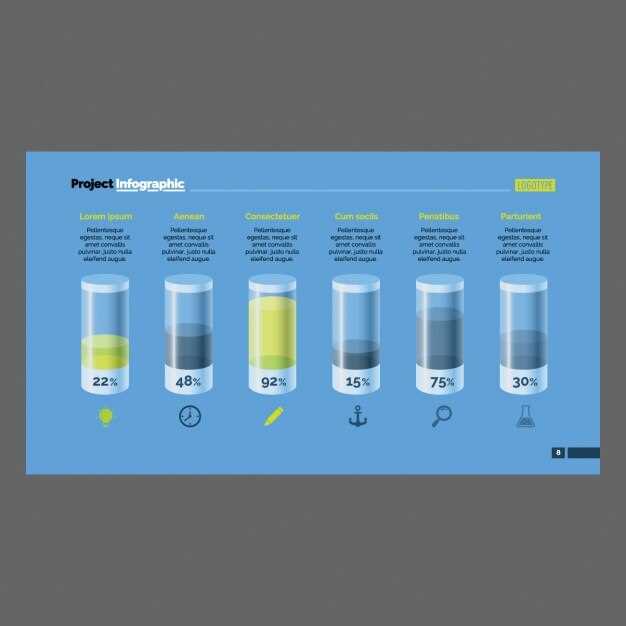
If you are looking for a reliable and effective medication for managing hypertension, lisinopril and losartan are two commonly prescribed options. Understanding the equivalent dosing of these two medications is essential for proper treatment. While lisinopril is an ACE inhibitor and losartan is an ARB, both medications work to lower blood pressure and protect the heart.
Understanding the Condition
Before considering treatment options like Lisinopril Losartan, it’s important to understand the condition it’s intended to treat. High blood pressure, also known as hypertension, is a common health issue that affects many individuals worldwide. It occurs when the force of blood against the walls of your arteries is consistently too high, leading to potential health risks such as heart disease, stroke, and kidney damage.
Having high blood pressure often doesn’t cause symptoms, which is why it’s referred to as a “silent killer.” Routine check-ups and monitoring can help catch hypertension early and reduce the risk of complications. Lifestyle changes, such as a healthy diet, regular exercise, and stress management, are crucial in managing high blood pressure. However, some individuals may require medication like Lisinopril Losartan to help lower their blood pressure and prevent further complications.
| Key Points: |
|---|
| 1. High blood pressure affects many people worldwide. |
| 2. It can lead to serious health risks if left untreated. |
| 3. Lifestyle changes are essential in managing blood pressure. |
| 4. Medications like Lisinopril Losartan may be needed for effective treatment. |
Benefits
There are numerous benefits to choosing Lisinopril Losartan as your medication of choice. Some of the advantages include:
1. Effective blood pressure control: Lisinopril Losartan is proven to be effective in controlling high blood pressure and reducing the risk of heart attack, stroke, and other cardiovascular complications.
2. Dual mechanism of action: Lisinopril Losartan combines the benefits of two different classes of medications – ACE inhibitors and ARBs – to provide a more comprehensive approach to blood pressure management.
3. Renoprotective effects: Lisinopril Losartan has been shown to have renoprotective benefits, protecting the kidneys from damage and preserving renal function in patients with hypertension.
4. Cardiovascular protection: In addition to lowering blood pressure, Lisinopril Losartan has been associated with improved cardiovascular outcomes, including reduced incidence of heart failure and other cardiovascular events.
5. Well-tolerated: Lisinopril Losartan is generally well-tolerated by most patients, with a low incidence of adverse reactions and side effects compared to other blood pressure medications.
6. Convenience: Lisinopril Losartan is available in a once-daily formulation, making it easy to incorporate into your daily routine and ensuring compliance with treatment.
Overall, choosing Lisinopril Losartan for blood pressure management offers a range of benefits that can improve your health and well-being.
Why Choose Lisinopril Losartan?
Lisinopril and Losartan are two commonly prescribed medications for hypertension. While they belong to different drug classes (ACE inhibitor and ARB, respectively), they are sometimes used in combination to provide better blood pressure control.
One of the reasons to choose Lisinopril Losartan combination therapy is the complementary mechanisms of action of these two drugs. Lisinopril works by inhibiting the enzyme that converts angiotensin I to angiotensin II, a potent vasoconstrictor, while Losartan blocks the binding of angiotensin II to its receptors, preventing its effects on blood vessels. This dual action helps to relax blood vessels and lower blood pressure more effectively.
Benefits of Lisinopril Losartan Combination
The combination of Lisinopril and Losartan offers several advantages:
- Improved Blood Pressure Control: Combining these medications can lead to better blood pressure reduction compared to either drug alone.
- Cardioprotective Effects: The two drugs together may offer additional cardiovascular protection beyond what each drug provides individually.
- Reduced Risk of Side Effects: Combining these medications at lower doses may help minimize the risk of side effects commonly associated with higher doses of each drug.
Dosing Information
Proper dosing of Lisinopril Losartan is crucial for the treatment of hypertension and heart failure. It is important to follow the prescribed dosage instructions carefully to achieve the best results and minimize the risk of side effects.
Recommended Dosage
The typical starting dose of Lisinopril Losartan is 50 mg once daily. However, the dosage may vary depending on the individual’s condition and medical history. Your healthcare provider will determine the appropriate dose for you based on various factors.
| Dosage | Frequency |
|---|---|
| 50 mg | Once daily |
It is important to take Lisinopril Losartan exactly as prescribed by your healthcare provider. Do not increase or decrease the dosage without consulting your doctor. If you miss a dose, take it as soon as you remember. However, if it is almost time for your next dose, skip the missed dose and continue with your regular dosing schedule.
Proper Dosage Instructions
It is crucial to follow the prescribed dosage instructions for Lisinopril Losartan to achieve optimal results and avoid potential risks. Your healthcare provider will determine the appropriate dose based on your medical condition and individual needs.
Typically, the initial dose of Lisinopril Losartan may vary depending on the severity of hypertension or heart failure. It is essential to take the medication as directed by your healthcare provider, usually once a day with or without food.
Important Dosage Considerations:
| Condition | Initial Dosage | Maximum Dosage |
| Hypertension | One tablet of Lisinopril Losartan 50-12.5 mg daily | One tablet of Lisinopril Losartan 100-25 mg daily |
| Heart Failure | One tablet of Lisinopril Losartan 50-12.5 mg daily | One tablet of Lisinopril Losartan 100-25 mg daily |
It’s crucial not to change the dosage or stop taking Lisinopril Losartan without consulting your healthcare provider. Missing doses can impact the effectiveness of the medication and may lead to complications. If you have any concerns or experience side effects, speak to your healthcare provider immediately.
Side Effects

When taking Lisinopril Losartan, it is important to be aware of potential side effects that may occur. While many individuals may not experience any side effects, some common ones to look out for include:
1. Dizziness: Some individuals may experience dizziness, especially when standing up quickly. It is important to be cautious when changing positions to prevent falls.
2. Fatigue: Feeling tired or lethargic may occur as your body adjusts to the medication. If fatigue persists, consult your healthcare provider.
3. Cough: A dry or persistent cough is a known side effect of Lisinopril. If the cough becomes bothersome, notify your doctor.
4. Headache: Headaches may occur initially as your body adapts to the medication. Keeping well-hydrated and getting enough rest can help alleviate headaches.
5. Nausea: Some individuals may experience mild nausea when taking Lisinopril Losartan. If nausea is severe or persistent, seek medical advice.
It is crucial to monitor your body’s response to the medication and report any unusual or severe side effects to your healthcare provider promptly.
Possible Adverse Reactions
While Lisinopril and Losartan are generally well-tolerated medications, there are some possible adverse reactions that patients should be aware of. It’s important to consult with a healthcare provider if you experience any of the following:
Common Side Effects

- Cough
- Dizziness
- Fatigue
- Headache
Serious Side Effects
- Fainting
- Swelling of the face, lips, throat, or tongue
- Irregular heartbeat
- Difficulty breathing
If you experience any severe side effects or allergic reactions such as rash, itching, or swelling, seek medical attention immediately. It’s important to follow your healthcare provider’s guidance and report any adverse reactions while taking Lisinopril or Losartan.
Comparison
When comparing Lisinopril and Losartan, it is important to consider their differences and similarities. Lisinopril is an ACE inhibitor, while Losartan is an ARB. Both medications are used to treat high blood pressure and heart failure, but they work in different ways. Lisinopril helps relax blood vessels to lower blood pressure, while Losartan blocks a hormone that constricts blood vessels.
Differences
| Feature | Lisinopril | Losartan |
| Drug Class | ACE Inhibitor | ARB |
| Mechanism of Action | Relaxes blood vessels | Blocks hormone to widen vessels |
| Common Side Effects | Cough, dizziness | Dizziness, back pain |
While both medications are effective in treating high blood pressure, the choice between Lisinopril and Losartan may depend on individual factors such as tolerability, side effects, and existing medical conditions. It is important to consult with a healthcare provider to determine the most suitable medication for your specific needs.
